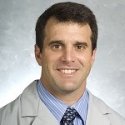The anterior cruciate ligament (ACL) is one of four ligaments that stabilizes the knee. It’s the most commonly injured knee ligament. There are nearly 200,000 ACL repair surgeries in the United States each year. Women are seven to eight times more likely to suffer ACL injuries than men.
The ACL prevents the knee from derotating in unnatural ways. Accelerating, decelerating and turning puts torsional stress on the knee. The ACL prevents that twisting.
An injury is often accompanied by a pop and/or the knee giving out. It typically swells but doesn’t need emergency treatment. A stabilizer and anti-inflammatory are the usual treatment. The injury can recover in several weeks.
An ACL tear will not repair itself and leads to knee instability. Rest, ice, compression and elevation can help the knee feel normal again. Physical therapy can help with swelling, soreness and mobility. Nearly every athlete is offered ACL repair surgery because they want to return to athletic activity. Bracing is effective for those who opt out of ACL repair surgery and engage only in low-level physical activity.
ACL Injury Prevention
Neuromuscular training is the best prevention. It teaches the body how to land, jump and cut properly. This could reduce ACL injuries in women by 50% but is also effective for men.
Minding fatigue and resting your body can reduce your body’s required recovery time. If your child is involved in two sports, be sure she’s getting the necessary time to recover from athletic endeavors.
Stick to efficient workouts and get plenty of sleep.
Listen as Dr. Eric Chehab joins Melanie Cole, MS, to discuss how to prevent and treat ACL injuries.

Life's Too Short... so make the most of it! Try something new, eat something healthy, grow something beautiful, hug someone you love, move around a lot, and be kind to yourself. Melanie Cole, MS brings you the best tips from lifestyle and fitness experts to the best and brightest medical professionals.
ACL Injury: Treatment & Prevention
Guest
: Eric Chehab, MD
From the Show: Life's Too Short
Summary: Find out how ACL injuries occur, as well as how to treat and prevent them.
Air Date: 9/12/17
Duration: 14:26
Tagged under
Απολαύστε την εμπειρία ενός ζωντανού καζίνο με πραγματικούς ντίλερ στο Infinity Casino, προσφέροντας παιχνίδια όπως Live Blackjack και Live Roulette.




